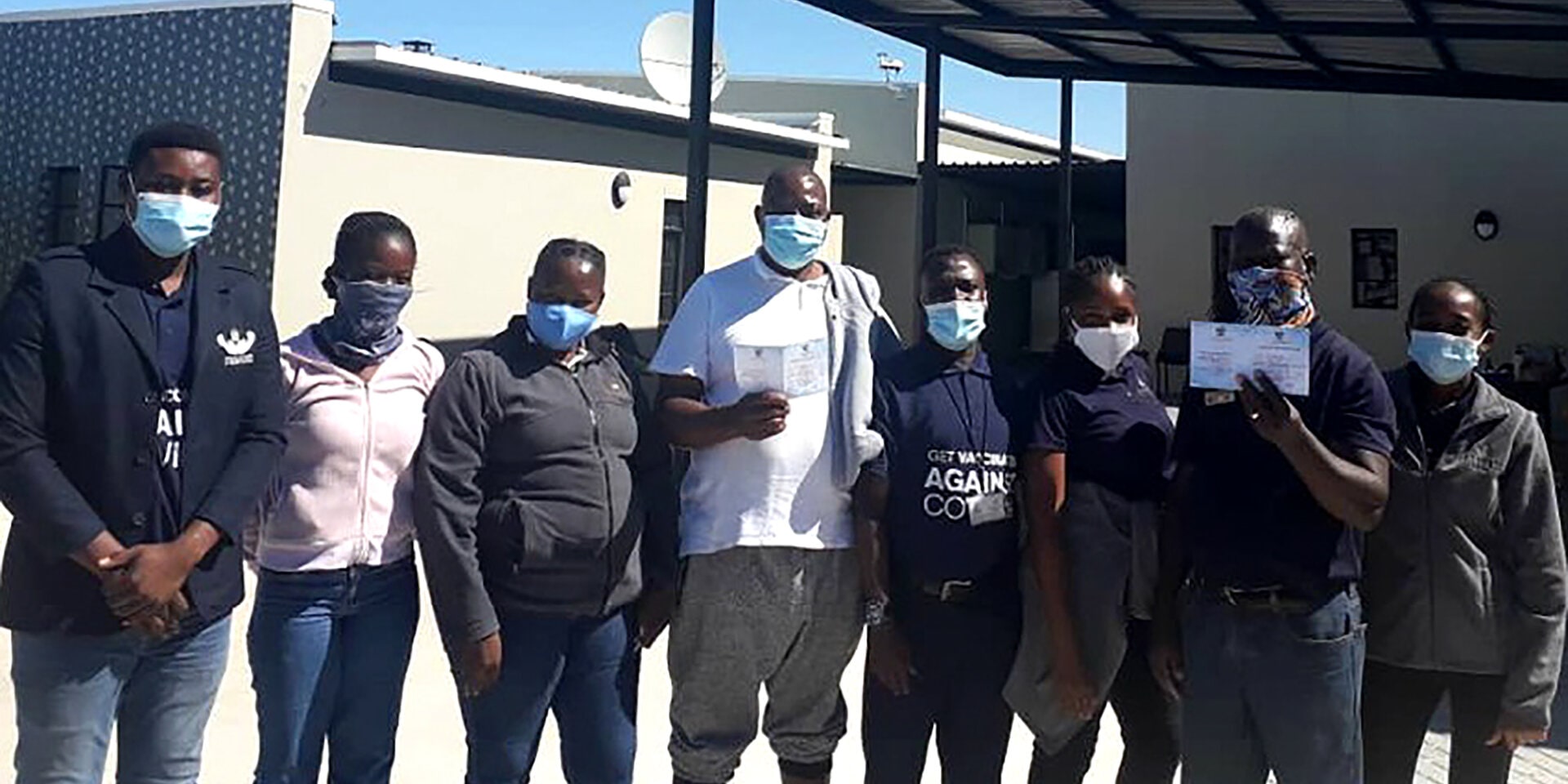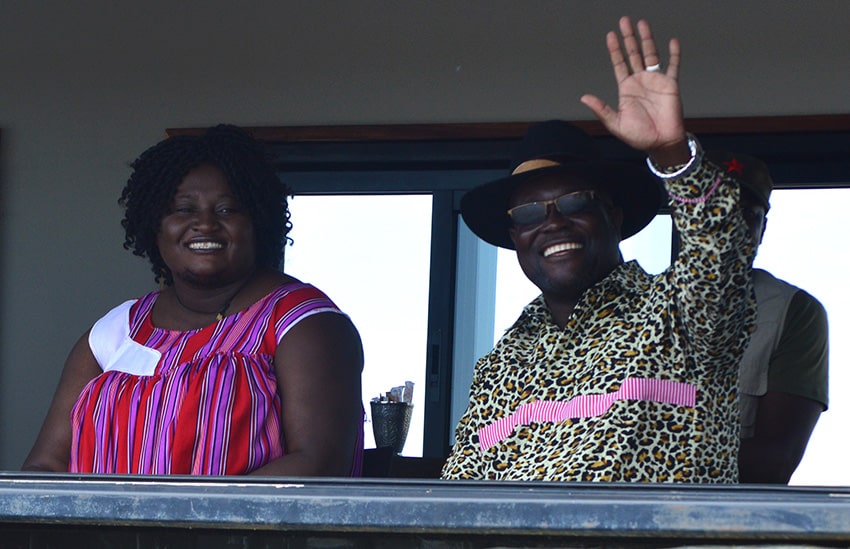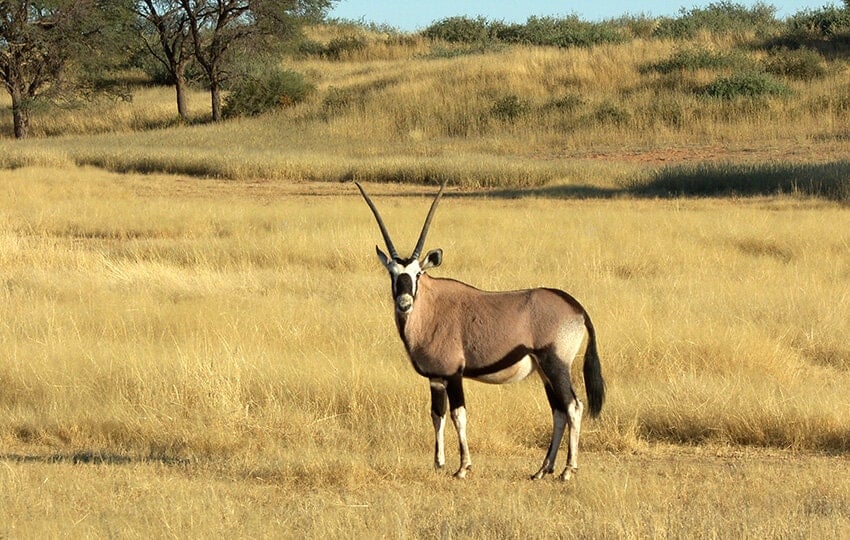Having ridden 2120km on his e-bike, Steve Galloway has reached Epupa Falls on the Kunene River, the halfway point of his journey. Steve’s journey to promote e-powering (e-mobility and e-learning) and to celebrate the country’s impressive conservation status of having 47% of its land under protection began three weeks ago on the Orange River. He has had to battle with headwinds, heat and rugged terrain along the way, yet has remarkably kept his calm composure and relaxed attitude throughout. Steve sailed into Omarunga Epupa-Falls Camp as if he had been out for a Sunday ride, something he admits he could never have done on a normal bike – highlighting the potential of e-bikes for use in rural communities in the future.
Besides promoting the Namibian-assembled Suncycles e-bikes, which can be used as ambulances, game-guard vehicles and taxis, and for transportation and waste disposal, an important part of his journey has been to identify conservancies along the way which require assistance. While he breaks the trip for board meetings in Windhoek, before resuming the journey from Epupa to the Zambezi Region in July, he will provide feedback to the newly-formed Community Conservation Fund of Namibia and to all the organisations that have expressed interest in the trip to ascertain how best to offer assistance. He will also engage with corporates for support. Steve says that connectivity is the cornerstone to everything, and hopes that MTC’s ‘081 for everyone’ programme and some of the proposed 500 new cellular towers will find their way to the areas where he encountered little connectivity and scanty 3G internet connection.
Steve has recognised that e-boxes – i.e. containers provided for the ‘Bicycle Empowerment Network Namibia’ (BENN) project - can also be used as hubs for e-learning and e-commerce, if there is connectivity available. He refers to them as ‘anchors for development’ and envisions them as centres for learning providing students with the opportunity for research and to further their studies, as places for after-school supervision and as hubs for community programmes. Some of the e-boxes are already being used as creches and for entrepreneurial endeavours. Most of the BENN e-boxes are in the north and north-eastern sections of the country where the population is larger and the distances smaller. There are only few e-boxes in the area he has just traversed: in Walvis Bay, Swakopmund, Lüderitz and Opuwo. Steve met with Paulina Endjala, BENN’s dynamic coordinator, in Opuwo to discuss the project that has 35 e-boxes countrywide, making bicycles available to local communities. The e-boxes will feature more prominently on the next leg of Steve’s journey when he cycles through the more populated areas. He is hoping to reach Katima Mulilo in time to support the launch of the Physically Active Youth (PAY) centre at the end of July and to visit the BENN e-box.
Most of the country’s perennial rivers still lie ahead - the Cuvelai drainage system, the Okavango, Kwando-Linyanti-Chobe river system and the Zambezi River – and Steve has already crossed over Namibia’s ephemeral rivers in the western section of the country. Many of these rivers, which only flow after good rainfall in their catchment areas, replenish important aquifers providing water in the drier reaches. The ephemeral rivers in the northern part of the country are also highways for wildlife, including the desert elephants and lions.
At his halfway point at Epupa, Steve calculated that he has spent eighteen days and 95 hours on his bike and has averaged 115km a day, sometimes cycling up to eight hours. The maximum distance he has cycled in a stretch has been 174km from Rosh Pinah to Klein Aus Vista, also the most difficult as he fought his way against a headwind that reduced his speed from an average of 22km/hour to 16km/hour and included the highest elevation difference of the entire trip at 1000m in a 36-kilometre climb.
Along the way he has met Namibia’s friendly people: the Topnaar along the Kuiseb River, the Damara along the route from Uis to Palmwag, Herero along the Ugab River and Himba from Opuwo. On the last stretch he had a short stint as a taxi driver when a man flagged him down north of Opuwo for a lift to his village. Further north he offered a man in traditional Himba garb a spin on his e-bike.
Steve reports that the landscape has been extraordinary - the rugged terrain along the Orange River, the red sands of Sossusvlei and the striking table-topped Etendeka mountain range near Palmwag contrasting with the makalani oasis at Epupa. Every section has offered superb scenery, revealing the scope for increased tourism in the country.
Ron Swilling





SUBMIT YOUR COMMENT